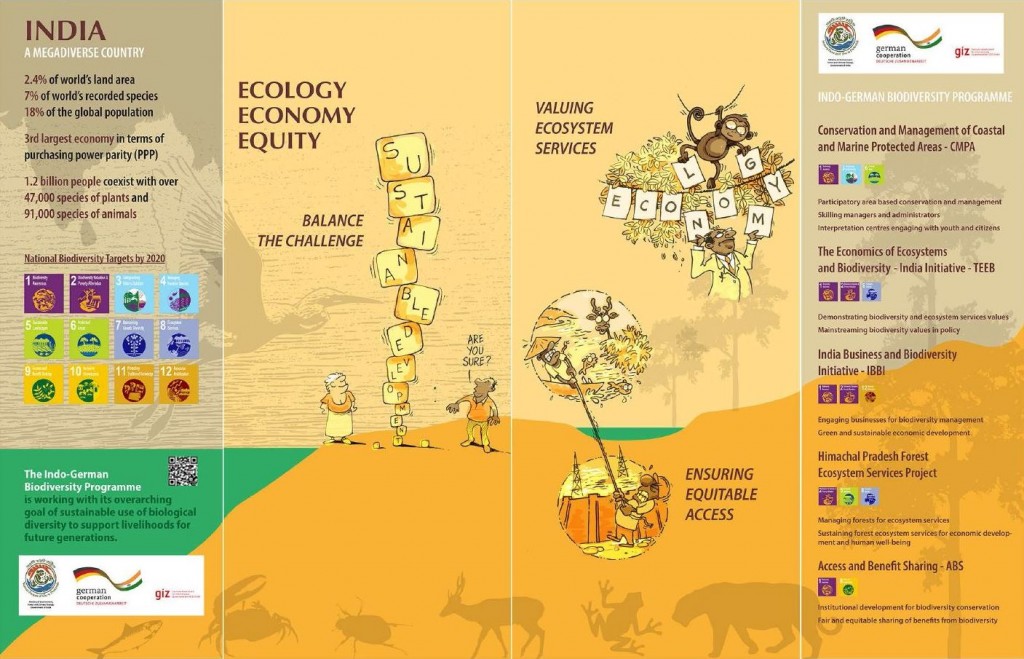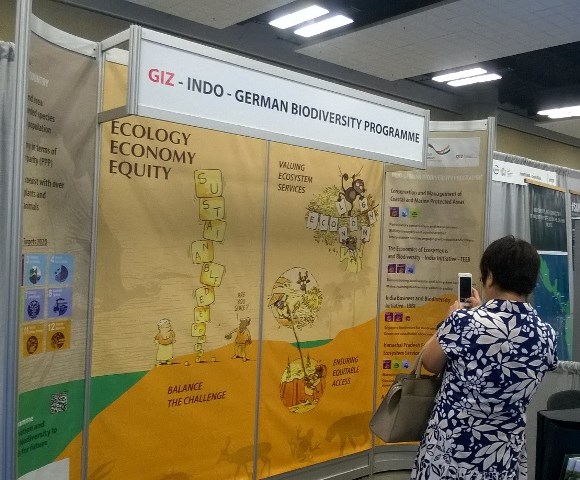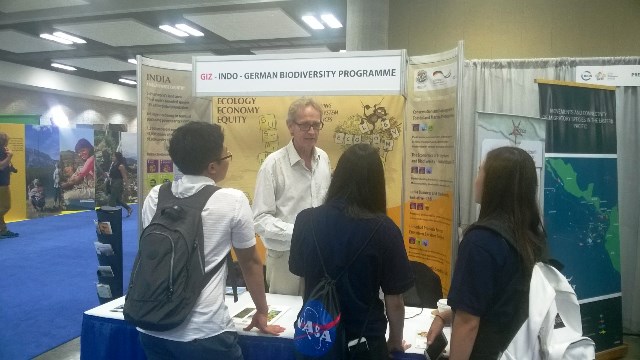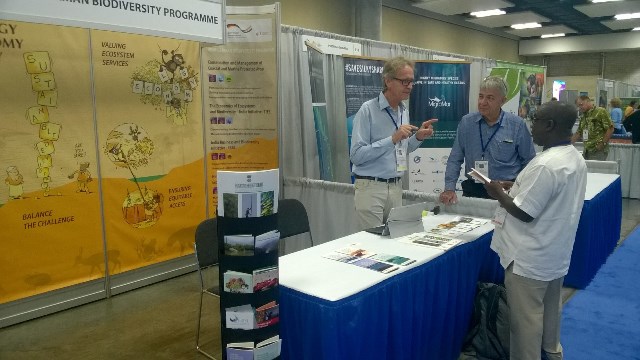Planet at the Crossroads: Indo-German Biodiversity Programme @ 25WCC, Hawaii
1-10 September, 2016
The 25th World Conservation Congress (WCC) of the International Union for Conservation of Nature (IUCN), has brought together thousands of leaders, decision-makers, civil societies, businesses, and academia from around the world. The theme for this year’s Congress is ‘Planet at the crossroads’ and is being hosted in Hawaii from 1-10 September, 2016.
Organised every four years, WCC provides a common platform to different representatives of the society to create good environmental governance, while ensuring a balance between human, social and economic development. The opening ceremony at the Neal Blaisdell Centre in Hawaii was marked by ancient chants, prayers and the inimitable Hula, celebrating the rich cultural history of Hawaii.
The Indo-German Biodiversity programme is also participating at WCC and has created online and booth posters. The booth poster displays- how the various projects under this programme, have been providing ecological and economic solutions to public and private partners for participatory conservation and sustainable use of biodiversity in India, such as the: – Conservation and Sustainable Management of Coastal and Marine Protected Areas (CMPA) project that contributes to the conservation and sustainable use of biodiversity in selected areas along the coast of India. – TEEB India Initiative (TII), which aims to make the values of biodiversity and the linked ecosystem services explicit for consideration and mainstreaming into developmental planning. – India Business & Biodiversity Initiative (IBBI) that has provided a platform to the Indian businesses to understand the impacts and dependencies of their operations and value chain on natural capital, as well as guidance to integrate biodiversity into business decisions and strategies. – Himachal Pradesh Forest Ecosystem Services (HP-FES) project that focuses on sustaining forest ecosystem services for human well-being and economic development. – Access and Benefit Sharing (ABS) Partnership Project, which aims at institutional development for the effective implementation of ABS mechanism in India, for the fair and equitable sharing of benefits from biodiversity.
Booth Exposure

The poster displaying the key highlights of the various projects under the Indo-German Biodiversity programme.
The booth posters received a good response from visitors coming from different parts of Africa, North America, Asia and Europe. The visitors interacted with Dr. Michael Vakily, GIZ Team leader, CMPA project, and Mr. Ravindra Singh, GIZ Team leader, TII project; and showed keen interest in the approach of the booth posters to use cartoon-based messages.

a glimpse into the messages shared in English, German, French, Gujarati, Persian, Korean and Urdu by visitors for the booth posters.
An important focus of discussions was the link between ecology and economy, that the TEEB studies highlight. In fact, there were requests for providing support in emulating them in other places.
Dr. Michael Vakily interacting with visitors at the booth
In pictures (left) Dr. Mathur, WII, sharing his feedback for the booth posters. (right) Mr. Ravindra Singh interacting with Mr. Alexander Müller
Visitors from India included Dr. V.B. Mathur, Director, Wildlife Institute of India, Dr. R.D. Kamboj, Director, GEER Foundation, and Alexander Müller, Head of a global study of the United Nations Environment Programme- “The Economics of Ecosystems and Biodiversity for Agriculture and Food”, as well as a large number of representatives from various private and governmental organisations.
Dr. Vakily also interacted with the Hawaiian TV Chain ThinkTech, and gave a short interview on the work of GIZ. Mr. Singh presented the online poster “New Evidences on Natural Capital – TEEB India Initiative.”

Mr. Ravindra Singh presenting the online poster- “New Evidences on Natural Capital – TEEB India Initiative”
The online posters focus on the key findings, approach, salient findings, and the overall recommendations of the TEEB-India Initiative (TII) studies. The posters, through the means of interesting cartoons, illustrate how economic concepts and tools can help equip the society to incorporate the values of natural capital into decision making at all levels.
To visit the online poster, please click on:












